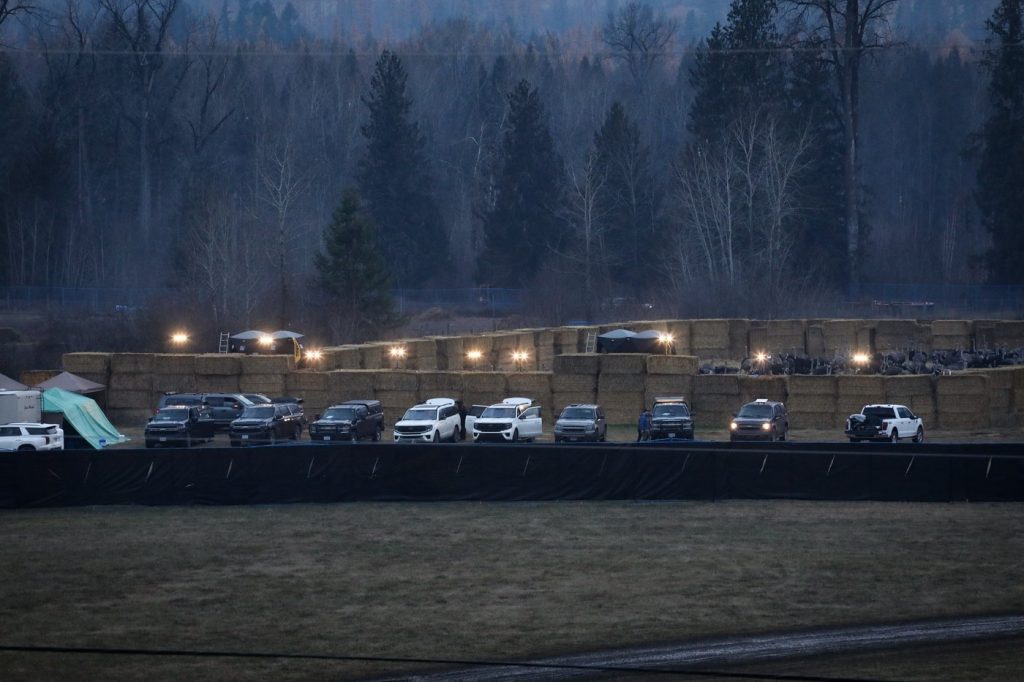Gunshots echoed at a British Columbia ostrich farm as the Canadian Food Inspection Agency (CFIA) initiated a controversial operation to cull hundreds of birds. This drastic measure comes after a prolonged avian flu outbreak that claimed the lives of 70 ostriches. The cull, which was mandated over ten months ago, faced opposition from the farm owners but was upheld by the Supreme Court of Canada, which recently declined to hear their last appeal, thus cancelling a previously issued stay on the culling order. Police limited public access to the property, and the situation became more obscure as darkness fell, further obscured by floodlights and bales.
In economic news, Statistics Canada is scheduled to unveil its jobs report for October. Economists polled by Reuters predict a minor contraction, forecasting the loss of around 2,500 jobs, a noticeable shift following September’s unexpected surge where more than 60,000 jobs were added. The unemployment rate is expected to remain steady at 7.1 percent. These job figures are particularly noteworthy as they come in the wake of the Bank of Canada's decision to cut its benchmark interest rate for the second consecutive month last month, indicating a careful balancing act in economic policy.
Elsewhere in Saskatchewan, the governing Saskatchewan Party is preparing for its biennial convention amid efforts to regain support from the province's major cities, Saskatoon and Regina. Advanced Education Minister Ken Cheveldayoff highlighted a theme of “Earn Back Saskatoon” and “Earn Back Regina,” aimed at reversing the party's poor performance in the last election where it faced significant losses in these urban centers. Cheveldayoff, the party's sole member from either city in the legislature, emphasized the need for the party to listen more to the community. The convention will feature policy discussions, a speech from Premier Scott Moe, and a leadership review vote.
In academic news, Concordia University in Montreal announced it will defer faculty sabbaticals and not renew certain teaching contracts due to budget cuts linked to federal and provincial immigration policies. The university reported a 23 percent drop in international student enrolment compared to the previous year and a staggering 40 percent decrease in applications from international students. To address these financial strains, Concordia is implementing cost-saving measures, including deferring sabbatical applications for a year and offering voluntary retirement packages for full-time faculty.
In Vancouver’s Chinatown, community advocates are rallying to preserve the area’s only post office, which is slated for closure by Canada Post. This decision has birthed a petition from the activist group Save Chinatown YVR, asserting the post office's crucial role as a lifeline for the neighborhood's vulnerable population. Jeffrey Wong, vice-president of Wongs’ Benevolent Association, has voiced concerns over the closure, emphasizing the post office's importance to residents. Canada Post indicated that the closure decision followed a mutual agreement with the business owners.
Lastly, if you have ever wanted to own a vintage Hudson’s Bay blanket, now is your chance. The company is set to auction off 52 blankets, including two that date back to 1900. These blankets feature HBC’s iconic patterns and colors, ranging from classic motifs to more contemporary hues. The online auction is scheduled to take place from November 12 to December 4, 2025, with additional sales planned for the following year. The proceeds from these auctions aim to settle the debts of the collapsed retailer and to assist HBC in finding new homes for its extensive collection of 4,400 art pieces and artifacts.
This summary brings together a diverse array of issues affecting British Columbia, Saskatchewan, Quebec, and Vancouver, highlighting the complex dynamics of environmental, economic, and cultural matters across Canada.










